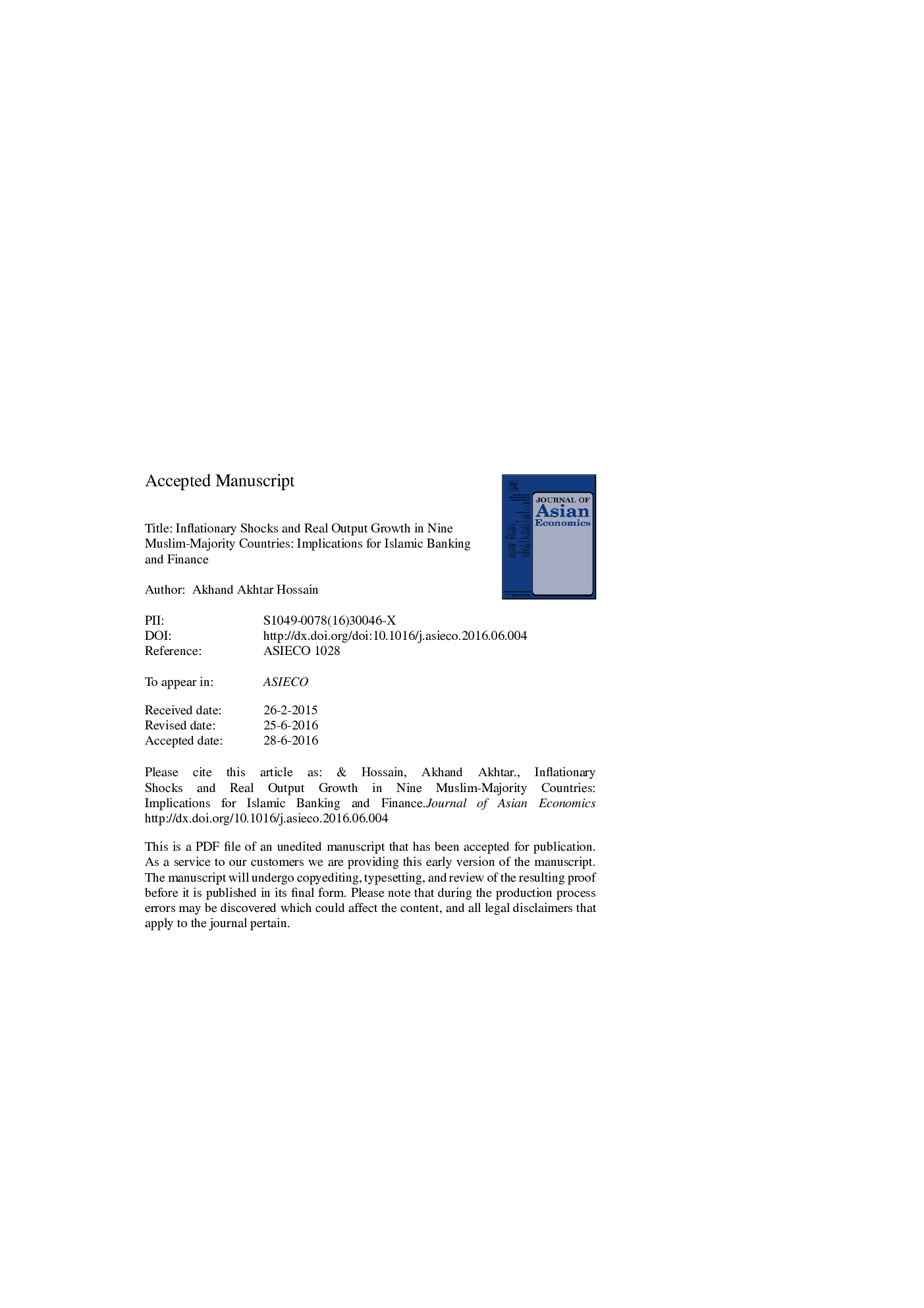| Article ID | Journal | Published Year | Pages | File Type |
|---|---|---|---|---|
| 5087204 | Journal of Asian Economics | 2016 | 32 Pages |
Abstract
Low and stable inflation is important for maintaining the viability of Islamic banking and finance within a dual banking system. Inflationary shocks when transmitted to real output growth cause a shift of investment to fixed return products as a hedge against the uncertainty of returns on equity investment under Islamic profit-loss sharing contracts. This study examines the transmission of inflationary shocks to the real economy for nine Muslim-majority countries (Bahrain, Bangladesh, Egypt, Indonesia, Iran, Malaysia, Pakistan, Saudi Arabia, and Turkey) that have introduced Islamic banking, all except Iran within dual-banking systems. A structural vector autoregressive (SVAR) framework is deployed to understand macroeconomic relationships using annual data from the late 1970s to 2014. The key finding is that inflationary shocks affect real interest and exchange rates which in turn impact real output growth. The paper argues that the absorption of inflationary shocks in real interest and exchange rates is the outcome of rigidities in nominal interest and exchange rates within repressed financial systems. Policy regimes that allow for greater adjustment in nominal interest and exchange rates under a deregulated financial system would offer better shock absorption capacity which would lead to less volatility in inflation, real interest and exchange rates, and real output growth. The resulting more stable macroeconomic environment would be more conducive to the development of an Islamic financial sector that would promote economic growth.
Related Topics
Social Sciences and Humanities
Economics, Econometrics and Finance
Economics and Econometrics
Authors
Akhand Akhtar Hossain,
